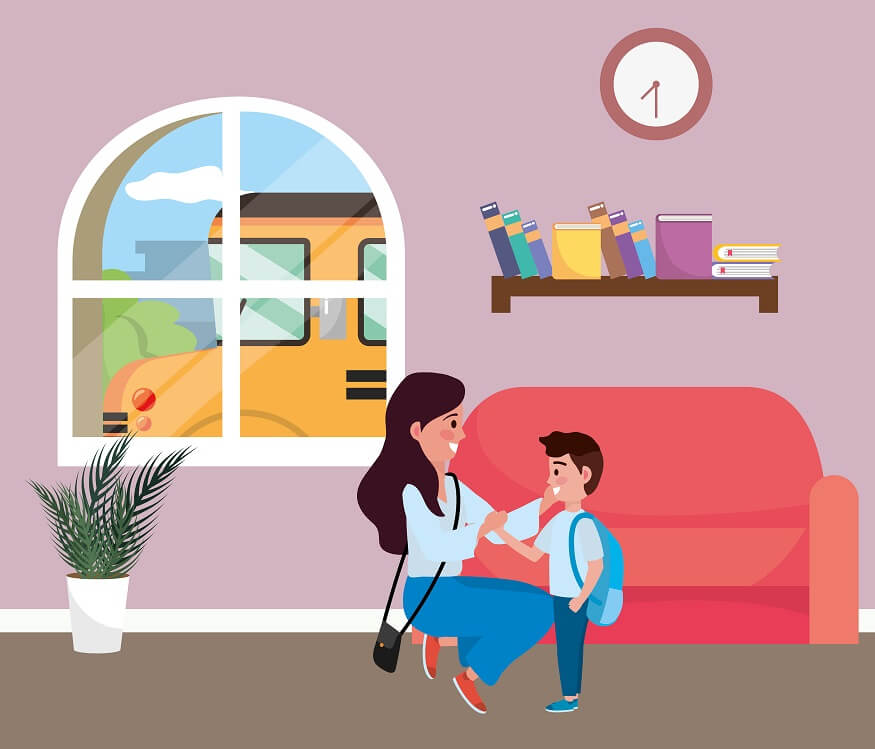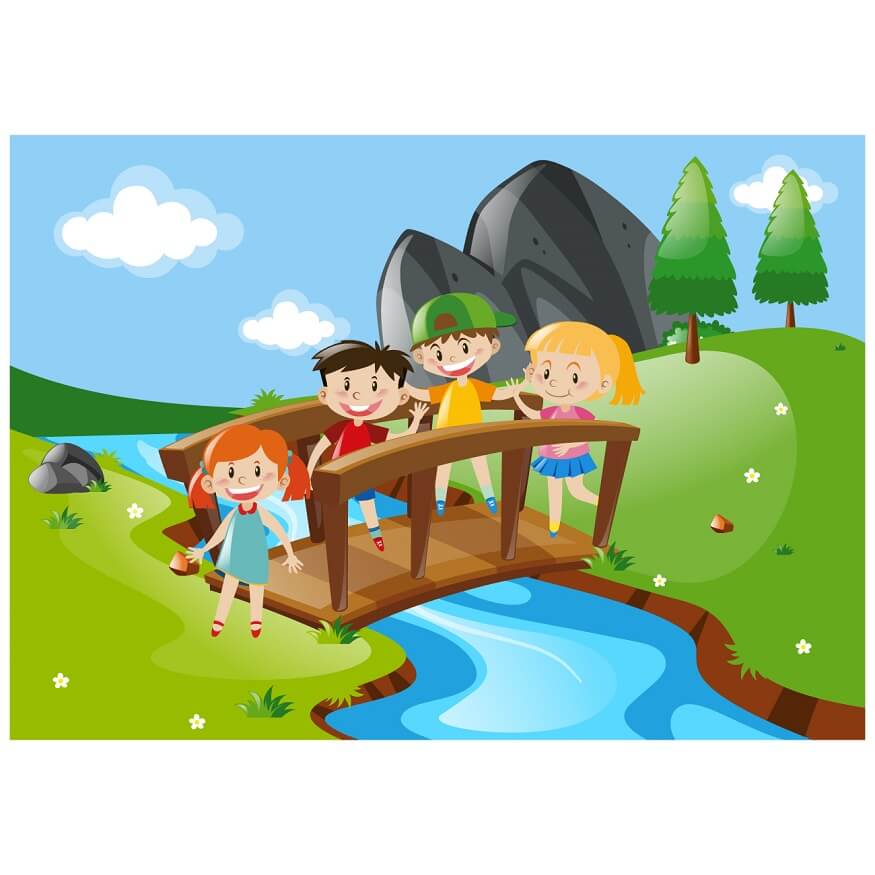For young children and their families, beginning kindergarten is a significant milestone. The transition from home to preschool can, however, occasionally be difficult. It marks the beginning of their formal education and the transition from the familiar surroundings of home to the structured environment of a preschool or elementary school. While this kindergarten transition is an exciting time, it can also bring about some challenges and uncertainties for both children and their families. However, with careful planning and preparation, the journey to kindergarten can be a smooth and positive experience.
Transition from home to preschool
- Establish a Consistent Routine – One of the key factors in facilitating a successful transition to kindergarten is establishing a consistent routine. Children thrive on predictability and routine, as it provides them with a sense of security and familiarity. Begin by setting regular wake-up and bedtime routines that align with the school schedule. This helps children adjust to the expected routines and ensures they are well-rested for their day at school. Additionally, establish consistent mealtimes and playtime schedules. Having structured mealtimes and dedicated playtime allows children to understand and adapt to the daily rhythm of the kindergarten environment. As you establish the routine, involve your child in the process by allowing them to participate in decision-making, such as choosing their clothes for the day or assisting with meal preparations. This not only promotes their independence but also creates a sense of ownership and excitement for their daily activities.
- Visit the School – Another essential step in preparing for the kindergarten transition is visiting the school before the first day. Take the opportunity to explore the kindergarten classrooms, playground, and other facilities with your child. This visit helps them adjust to their new environment and calms any fears they may have about the uncharted. Meeting the teacher in advance allows your child to establish a connection, ask questions, and share any concerns they may have. This first interaction may do a lot to allay concerns and foster goodwill between your child and their instructor.
- Read Books about Kindergarten – To help your child mentally prepare for kindergarten, consider incorporating age-appropriate books about starting school into your reading routine. Look for books that depict positive experiences, friendships, and the joy of learning. Reading these books together provides an opportunity to discuss what to expect and address any concerns your child may have. Encourage children to share their thoughts and feelings by asking them questions. This open dialogue helps normalise their feelings and provides reassurance.
- Encourage Independence – Promoting independence is another important aspect of preparing for kindergarten. Children are encouraged to accept responsibility for their behaviours and learn self-help techniques in kindergarten. Take the time to teach your child skills such as dressing themselves, using the bathroom independently, and practising basic hygiene routines. By fostering these self-help skills at home, your child will feel more confident and capable in the classroom setting. Additionally, teaching your child fundamental abilities like zipping up coats, buttoning buttons, or tying shoelaces helps increase their self-esteem and gives them a sense of success. Enquire and allow them to express their feelings.
- Practice School Routines – To familiarise your child with the expectations and routines of the kindergarten classroom, it is helpful to practise school-like activities at home. When they have a question or something to offer, encourage your youngster to raise their hand. Teach them the importance of taking turns and following simple instructions. By integrating these practices into your daily interactions, your child will develop an understanding of the structure and expectations of the classroom environment.
- Foster Social Skills – Kindergarten emphasises social engagement and developing relationships with classmates in addition to academics. To help your child develop social skills and ease their transition, arrange playdates with other children who will be attending the same kindergarten. Participate in community activities or join local playgroups where your child can interact with their future classmates. These interactions provide opportunities for your child to practise sharing, taking turns, and resolving conflicts in a social setting. Your kid will feel more at ease and secure engaging with friends in kindergarten if these social skills are encouraged outside of the classroom.
- Maintain Open Communication – Maintaining open communication with your child is vital throughout the transition to kindergarten. Create a space where kids may openly express their feelings, concerns, and hopes. Listen attentively and validate their emotions. Children often feel both excited and nervous when starting school. By acknowledging their concerns and addressing them together, you can help ease their worries and build their confidence. Stay close to your child, listen to their stories, and help them share any difficulties they face. This open line of communication reassures your child that you’re there for them and conforms to their emotions.
- Establish a Goodbye Routine – Separation anxiety can be common during the transition to kindergarten. To ease the process of saying goodbye, establish a consistent goodbye routine. This routine can involve a special handshake, a hug, or a simple phrase that you repeat each day. Consistently following this routine provides reassurance to your child and helps them feel more secure when parting ways. It sends them a message that they have your love and support even if they are moving into a new setting.
- Create a Visual Schedule – Creating a visual schedule can be a helpful tool for your child to understand the daily routine and transitions within the school day. Use pictures or drawings to represent activities such as circle time, playtime, lunchtime, and story time. Display the schedule at home where your child can easily see it and discuss the activities together. This visual representation helps your child become familiar with the structure of the school day and provides a sense of predictability.
- Celebrate Achievements – Throughout the transition to kindergarten, celebrate your child’s achievements, no matter how small. Congratulate them on their efforts in adjusting to new surroundings, making new friends, or acquiring new abilities. Positive reinforcement boosts their self-esteem, motivation, and overall enthusiasm for their kindergarten experience. Celebrating milestones and accomplishments reinforces the idea that school is an exciting and rewarding place to be.
Also Read: How Do You Teach Kids the Importance of Life Skills
In conclusion, the change from home to school is exciting and challenging for both children and parents. By implementing these simple tips, you can help ensure a smooth kindergarten transition. Remember to establish a consistent routine, visit the school, read books about kindergarten, encourage independence and social skills, maintain open communication, establish a goodbye routine, create a visual schedule, and celebrate your child’s achievements. Use a transition to kindergarten checklist to ensure a smooth and prepared start for your child’s journey into kindergarten. With your support and guidance, your child will embark on their kindergarten journey with confidence and excitement.
EuroSchool values a well-rounded education, we provide a variety of extracurricular activities and events. Through these activities, kids may discover their passions, develop their skills, and make friends. EuroSchool recognizes that the transition from home to preschool is a significant milestone for children and their families. With a child-centric approach, a balanced curriculum, supportive educators, and engaging extracurricular activities, EuroSchool transitional kindergarten activities ensure a smooth and enriching transition. By fostering a love for learning and nurturing holistic development, EuroSchool sets a strong foundation for a child’s educational journey, making their preschool experience both enjoyable and meaningful.










